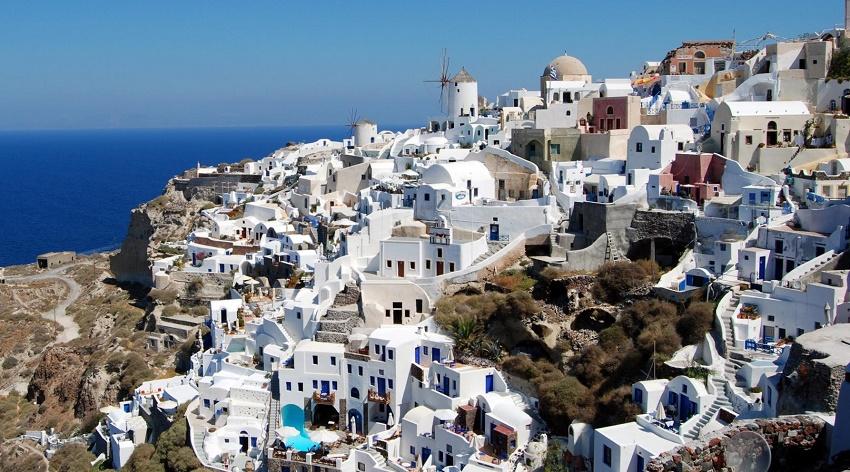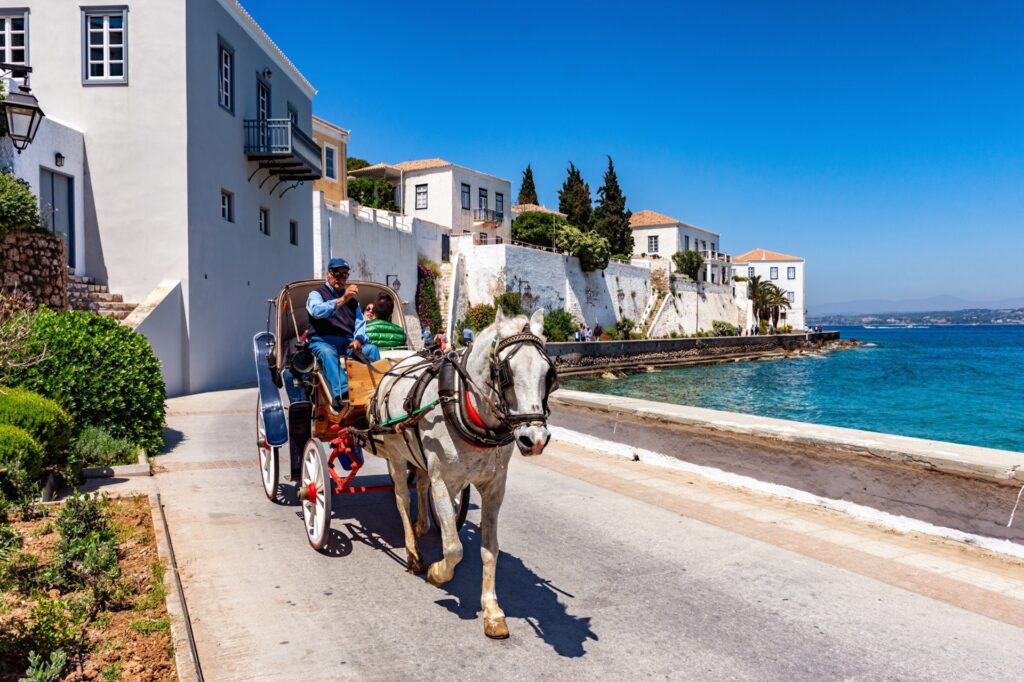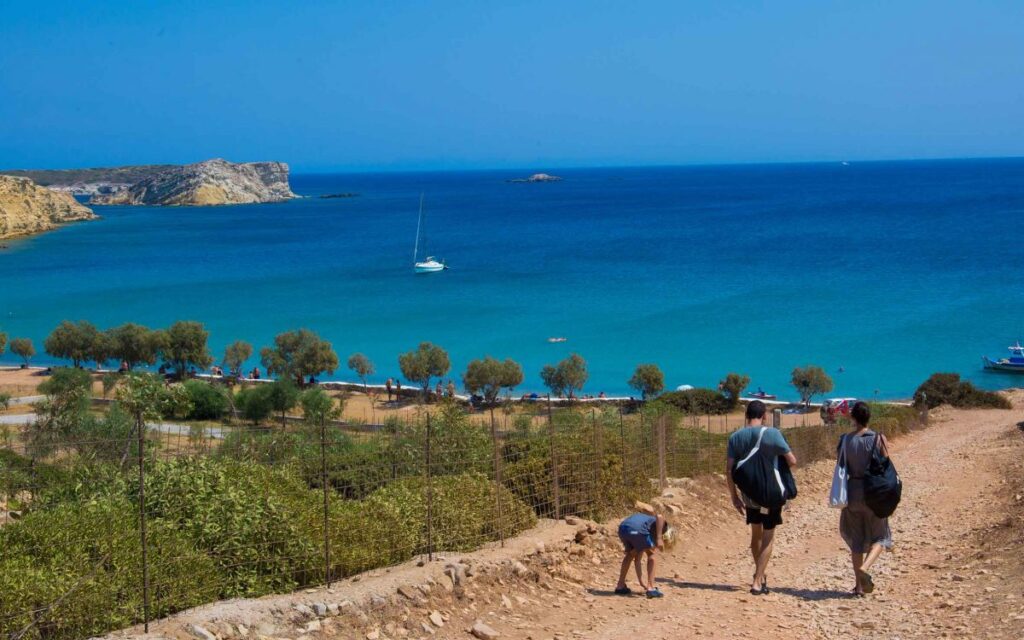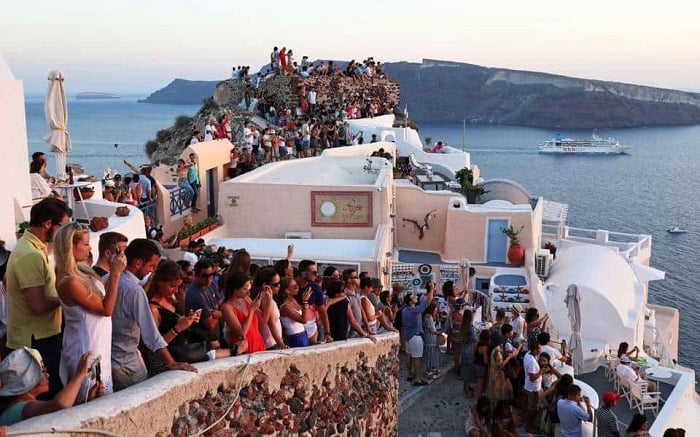Hey there, ready to embark on an exciting journey to the stunning Greek Islands? In this article, we’ll be exploring the captivating world of sustainable tourism practices in these breathtaking destinations. With a growing awareness of protecting our planet, there has been a shift towards sustainable travel, and the Greek Islands have been at the forefront of this movement. From preserving the rich cultural heritage to conserving the pristine natural landscapes, these islands have taken tremendous strides in ensuring a harmonious coexistence between travelers and the environment. So get ready to discover the fascinating initiatives that make these Greek Islands not just a picturesque escape, but a sustainable one too!

1. Importance of Sustainable Tourism
1.1 Environmental Impact
Sustainable tourism plays a vital role in protecting the environment of the Greek Islands. These islands are known for their breathtaking natural beauty, crystal-clear waters, and diverse ecosystems. However, the influx of tourists can result in significant environmental degradation if not managed properly. Sustainable tourism practices focus on minimizing the negative impacts on the environment by promoting responsible and eco-friendly tourism activities. These practices include conserving natural resources, minimizing pollution, and protecting vulnerable ecosystems and wildlife.
1.2 Social Impact
In addition to the environmental impact, sustainable tourism also aims to maximize the positive social impacts on local communities. The Greek Islands have a rich cultural heritage, and sustainable tourism practices aim to preserve and promote this heritage. By involving and engaging local communities in tourism activities, sustainable tourism helps to create opportunities for economic development, cultural exchange, and community empowerment. This leads to the preservation of local traditions, languages, and customs, contributing to the overall well-being of the local residents.
1.3 Economic Impact
Sustainable tourism not only benefits the environment and local communities but also has significant economic implications. The Greek Islands heavily rely on tourism as a major source of revenue. However, traditional tourism practices can often result in uneven distribution of income and economic leakages. Sustainable tourism practices, on the other hand, promote a more balanced and inclusive economic development by supporting local businesses, creating job opportunities, and encouraging the growth of sustainable industries such as eco-tourism and agro-tourism. This not only benefits the local economy but also ensures the long-term stability and sustainability of the tourism sector in the Greek Islands.
2. Current Tourism Issues in the Greek Islands
2.1 Overcrowding
The Greek Islands have experienced a surge in tourist arrivals in recent years, leading to issues of overcrowding in popular tourist destinations. Overcrowding not only negatively impacts the tourist experience but also puts a strain on the local infrastructure, resources, and natural ecosystems. Sustainable tourism strategies should focus on managing visitor numbers, promoting off-peak season travel, and diversifying tourism activities to reduce the concentration of tourists in specific areas.
2.2 Waste Management
The large number of tourists visiting the Greek Islands contributes to increased waste generation, putting a burden on the local waste management systems. Improper waste management practices can lead to pollution of land, water, and marine ecosystems. Sustainable tourism practices aim to implement effective waste management systems, including recycling initiatives and reducing single-use plastics, to minimize the environmental impact of tourism activities.
2.3 Water Conservation
Water scarcity is a growing concern in the Greek Islands, particularly during the hot summer months when water demand is high. The tourism sector heavily relies on water resources for various activities, including hotel operations, swimming pools, and irrigation of golf courses. Sustainable tourism strategies should focus on promoting water conservation measures, such as water-saving technologies, rainwater harvesting, and educating tourists about responsible water usage.
3. Sustainable Tourism Strategies
3.1 Environmental Conservation
To ensure the long-term sustainability of tourism in the Greek Islands, it is crucial to prioritize environmental conservation. This can be achieved through the preservation of natural habitats, restoration of degraded ecosystems, and the implementation of sustainable practices such as energy efficiency, waste reduction, and water conservation. Collaboration between stakeholders, including government agencies, local communities, and tourism industry players, is essential to implement and enforce sustainable environmental policies and regulations.
3.2 Community Engagement
Engaging and involving local communities in sustainable tourism practices is key to fostering a sense of ownership and responsibility. This can be done through the establishment of community-based tourism initiatives, where local residents actively participate in hosting tourists, showcasing their cultural heritage, and benefiting economically from tourism activities. Community engagement also includes providing training and capacity building opportunities for local residents to enhance their skills and knowledge in the tourism industry.
3.3 Local Economic Development
Sustainable tourism strategies should prioritize the development of local economies by supporting local businesses and enterprises. This can be achieved through initiatives such as promoting locally sourced products, encouraging the use of local services and accommodations, and providing financial incentives and support for small and medium-sized enterprises. By integrating the local economy into the tourism value chain, sustainable tourism ensures a more equitable distribution of economic benefits and reduces economic leakages.
4. Best Practices for Sustainable Tourism in Greek Islands
4.1 Eco-friendly Accommodation
One of the key factors in promoting sustainable tourism is the availability of eco-friendly accommodation options. Many hotels and resorts in the Greek Islands have adopted sustainable practices such as energy-efficient lighting, water-saving fixtures, and responsible waste management systems. Additionally, eco-certifications, such as the Green Key certification, help tourists identify and choose accommodation that meets rigorous sustainability criteria.
4.2 Renewable Energy
The Greek Islands have abundant natural resources, particularly solar and wind energy, which can be harnessed to meet the energy needs of the tourism sector. Investing in renewable energy infrastructure, such as solar panels and wind turbines, not only reduces dependence on fossil fuels but also helps to create a more sustainable and resilient energy system. Additionally, the use of renewable energy in transportation, such as electric vehicles and boats, further contributes to reducing carbon emissions.
4.3 Sustainable Transportation
Promoting sustainable transportation options is essential to reduce the environmental impact of tourism in the Greek Islands. Encouraging the use of public transportation, cycling, and walking can help minimize the carbon footprint of tourists. Additionally, establishing well-connected and efficient public transportation systems, such as electric buses, can reduce the reliance on private cars and alleviate traffic congestion in popular tourist areas.

5. Case Studies of Sustainable Tourism in Greek Islands
5.1 Santorini
Santorini has implemented various sustainable tourism practices to address the challenges of overcrowding and environmental degradation. The island has limited the number of cruise ships allowed to dock at the port, implemented a cap on the number of daily visitors to the iconic Oia village, and promoted sustainable transportation options such as electric buses and bicycles. Additionally, the island has invested in water desalination plants to meet the water demands of tourists without putting excessive pressure on the limited freshwater resources.
5.2 Crete
Crete has focused on community engagement and empowerment to promote sustainable tourism. Local communities actively participate in hospitality training programs and offer authentic cultural experiences, such as cooking classes and cultural tours, to tourists. The island has also implemented waste management initiatives, including recycling programs and beach clean-up campaigns, to reduce the environmental impact of tourism activities. Moreover, Crete has embraced agro-tourism, where tourists can experience traditional agricultural practices and support local farmers.
5.3 Mykonos
Mykonos has prioritized sustainable transportation to reduce the carbon emissions associated with tourism. The island has replaced traditional taxis with electric vehicles, implemented a bike-sharing program, and promoted walking tours in the town center. Mykonos has also collaborated with local businesses to reduce plastic waste by implementing refillable water stations and encouraging the use of biodegradable packaging. These initiatives demonstrate Mykonos’ commitment to sustainability and responsible tourism practices.
6. Role of Government and Policy
6.1 Legislative Framework
The Greek government plays a crucial role in promoting and enforcing sustainable tourism practices. It is important to have a robust legislative framework that supports sustainable development, environmental protection, and social inclusion. This includes the establishment of regulations and guidelines for waste management, water conservation, renewable energy, and other key areas of sustainable tourism. Regular monitoring and enforcement of these policies are essential to ensure compliance and accountability.
6.2 Incentive Programs
Incentive programs can encourage tourism industry players to adopt sustainable practices and initiatives. The government can provide financial incentives, tax breaks, and grants to businesses that invest in eco-friendly infrastructure, implement energy-saving measures, or engage in community-based tourism activities. These programs can help overcome financial barriers and promote the transition towards a more sustainable and responsible tourism sector.
6.3 Collaboration with Stakeholders
Collaboration between the government, local communities, and tourism industry stakeholders is essential for the success of sustainable tourism initiatives. Regular communication, consultation, and dialogue are vital to ensure that the needs and concerns of all stakeholders are taken into account. The government should establish platforms for collaboration, such as sustainable tourism councils or working groups, where different stakeholders can come together to share best practices, exchange knowledge, and collectively address the challenges and opportunities of sustainable tourism in the Greek Islands.

7. Challenges and Solutions for Sustainable Tourism
7.1 Balancing Preservation and Development
One of the key challenges in sustainable tourism is finding the right balance between preserving the natural and cultural heritage of the Greek Islands while allowing for tourism development and economic growth. This can be achieved through comprehensive planning and zoning regulations that identify areas for conservation, tourism development, and infrastructure improvement. Additionally, education and awareness campaigns can help tourists and local communities understand the importance of responsible tourism and the value of preserving the unique characteristics of the Greek Islands.
7.2 Education and Awareness
Education and awareness play a crucial role in promoting sustainable tourism practices. Tourists should be informed about the environmental and cultural sensitivities of the Greek Islands and encouraged to engage in responsible behaviors such as waste reduction, water conservation, and respecting local customs and traditions. Local communities should also be provided with educational resources and training opportunities to enhance their understanding of sustainable tourism and equip them with the necessary skills to actively participate in tourism activities.
7.3 Monitoring and Evaluation
Regular monitoring and evaluation are essential to measure the effectiveness of sustainable tourism practices and identify areas for improvement. This includes monitoring the environmental impact of tourism activities, assessing the socio-cultural implications, and evaluating the economic benefits for local communities. By collecting and analyzing relevant data, policymakers and stakeholders can make informed decisions and adjust strategies to ensure the long-term sustainability of tourism in the Greek Islands.
8. Future Outlook of Sustainable Tourism in Greek Islands
8.1 Technological Innovations
Technological innovations are expected to play a significant role in the future of sustainable tourism in the Greek Islands. Advancements in renewable energy, waste management systems, and smart infrastructure can help reduce the environmental footprint of tourism activities. Technology solutions such as blockchain and artificial intelligence can also enhance transparency, traceability, and accountability in sustainable tourism practices.
8.2 Sustainable Tourism Certification
The adoption of sustainable tourism certification programs can play a crucial role in promoting and recognizing sustainable tourism practices in the Greek Islands. Certifications such as the Global Sustainable Tourism Council (GSTC) certification provide a standardized framework for assessing the sustainability performance of destinations, accommodations, and tour operators. By obtaining these certifications, tourism industry players can demonstrate their commitment to sustainability and attract environmentally conscious tourists.
8.3 Diversification of Tourism Activities
To ensure the long-term sustainability of tourism in the Greek Islands, it is essential to diversify tourism activities beyond the traditional sun and beach tourism. This can be achieved by promoting cultural tourism, nature-based tourism, adventure tourism, and agro-tourism. Diversification not only reduces the pressure on popular tourist destinations but also provides new economic opportunities for local communities, encourages longer stays, and attracts a wider range of tourists throughout the year.
In conclusion, sustainable tourism practices are essential for preserving the natural and cultural heritage of the Greek Islands, promoting economic development, and ensuring the long-term sustainability of the tourism sector. By addressing current tourism issues, implementing effective strategies, and collaborating with stakeholders, the Greek Islands can become a leading destination for sustainable and responsible tourism. With the right policies, incentives, and commitment from all stakeholders, the future outlook of sustainable tourism in the Greek Islands is promising.

